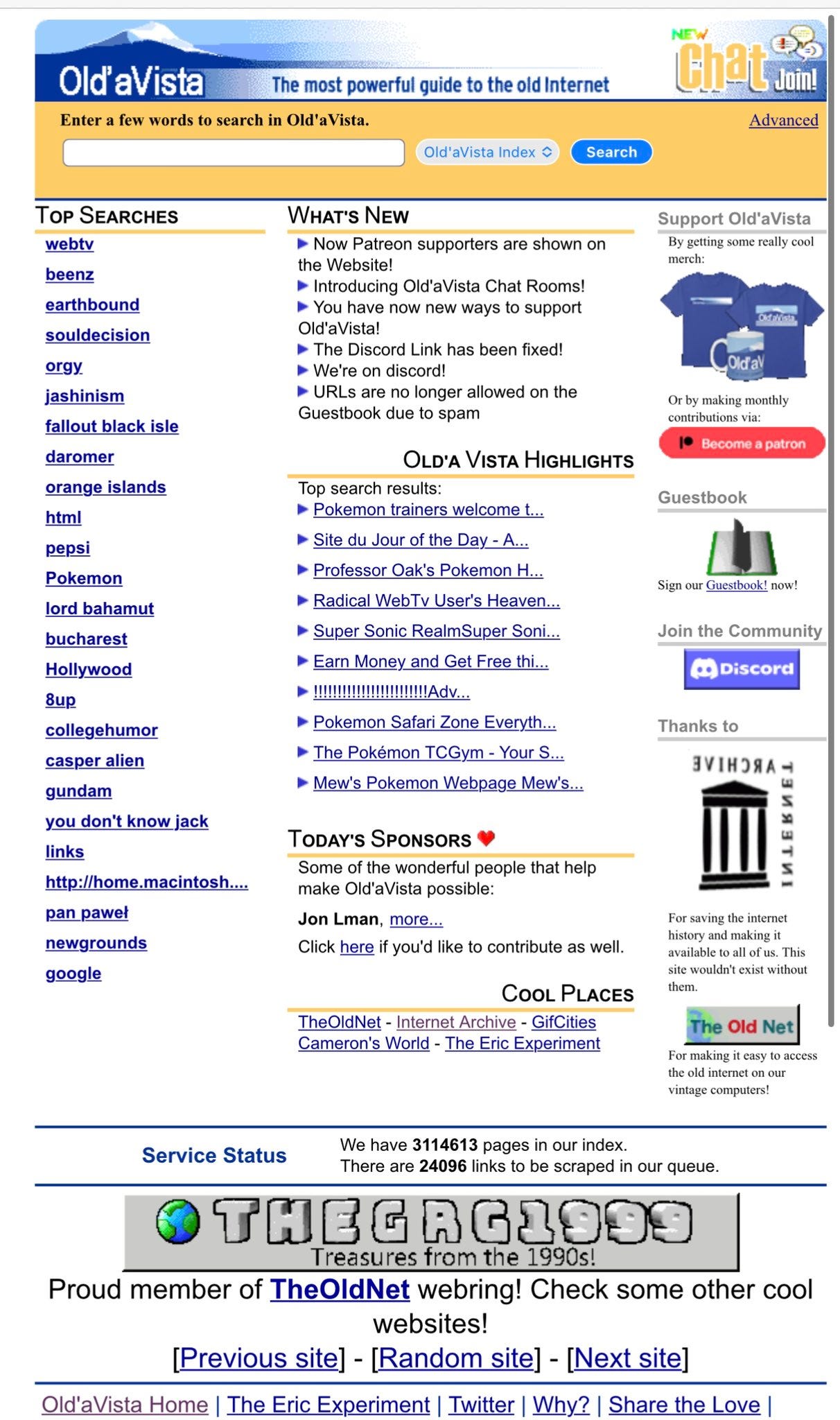This post, full of mysteries...
Embracing mysteries and weirdness is a key to creativity. Herein lie some useful sources of weirdness on the internet.
Creativity benefits from mystery.
Mysteries envoke a psychological trait called specific curiosity - an “intense desire to find an explanation for a puzzling experience or phenomenon,” The most innovative people are not necessarily the smartest, or even the most creative; but they often are the people who are absolutely driven by curiosity to find answers. This connection is very direct, as the paper I linked to shows that people who act with more specific curiosity one day end up being more creative the next.
Mystery helps boost creativity in a second way. New ideas are often recombinations or variations on past ideas. The more chances you have to encounter new ideas or think in new ways, the greater your chance of connecting those new concepts together with your existing knowledge in a new way. That is the basis of many breakthrough ideas.
So, how can you add more curious mysteries to your life? By doing what you are doing now - surfing the internet. Surfing actually increases your creativity by invoking specific curiosity. When trying to find out something new (“how does that magic trick work”) you consider many options & hypotheses as you refine your search results, prompting an internal brainstorming session. But you can go beyond that by seeking out specific sites to pique your curiosity and add weirdness to your life.

Find a mysterious rabbit hole
Taken from Alice in Wonderland, a “rabbit hole” is place on the internet you enter only to be trapped in a warren of mysterious branching paths. The great source of rabbit holes is, of course, Wikipedia. It offers some great places to start serendipitous browsing. May I suggest this compendium of unusual articles or this The List of Common Misconceptions, a set of 500+ things you are wrong about. Both make great starting points to add some mysteries to your life.

A more tailored source of mysterious rabbit holes is Wikenigma. What if there was a Wikipedia for things we don’t know? That’s Wikenigma, which only has topics where the answer is unknown. There’s lots of cool stuff: we don't actually understand: like why moths like light, or the origin of “abracadabra.”
Let AI make it weird…
Working with other people can lead to interesting new ideas, and, the more diverse the group the more creative the ideas. But what if you could work with an alien to bounce your thoughts off of? That is what AI is like now: trained on human concepts, but with a very different approach to resolving problems than humans would take.
I suggest going to the Open AI Playground (it is free to use for the first few searches), and starting sentences for the AI to complete. You might be surprised what the alien mind suggests.
Venture capitalist James Cham suggested asking the OpenAI model to create one act plays between famous people. You can also ask them to give you advice.
There are a few AI tools in development that may make adding AI weirdness to your life a little easier. Metaphor uses predictive search to guess the links that might shed light on your question. The answers are uneven, but fascinating.
Search the internet in worse ways
We are used to searching the internet with Google. But so is everybody else, so people who Google before idea generation sessions often come up with more generic ideas. If you want to find different ideas than other people, you might want to use a search engine that is not as good at finding the answers you want, but may show you the answers you need. Three good ones:
Million Short is a search engine that purposefully excludes the top results you would find on Google. You can skip the top 100 results, or even the top million. The answers may be less useful, but may be more interesting.
Marginalia is weird search engine that purposefully looks for less relevant, less commerical results. Be patient, “the entire search engine is hosted off a single PC in Sweden, albeit with pretty solid specs.”
Oldavista: only searches the old web, sites like Tripod & Geocities. Find out the secrets of the ancients (or at least what people who made websites before 2009 knew).
Make resolving mysteries a habit
People often ask me how I find so many articles to tweet and write about. The answer is curiosity. If I come across something I don’t know the answer to, I look it up. Often that exposes bigger mysteries or surprising results that motivate future exploration - curiosity begets curiosity. We live in a world where vast compendiums of human knowledge are available from your phone. You just need to get in the habit of looking for answers.
Remarkably few people seem to be motivated to track down mysteries, even when motivated to do so. For example, when high schoolers were faced with an anonymous fake ballot-stuffing video passed off as an event that happened in the US and asked if they thought it was real, only 3 out of 3,119 tracked down the source by searching online, But curiosity is a habit that can be cultivated, and, unlike other forms of curiosity that can lead to negative behavior, specific curiosity seems to have fewer side effects.
So, use the links in the article to find some mysteries, and get used to searching for answers when you encounter unknowns in life. You will be more creative as a result.





Awesome. I love the idea of Wikenigma, those are always my favorite things to get sucked in to. Seems like a great source of writing inspiration for me.
Loved this article.